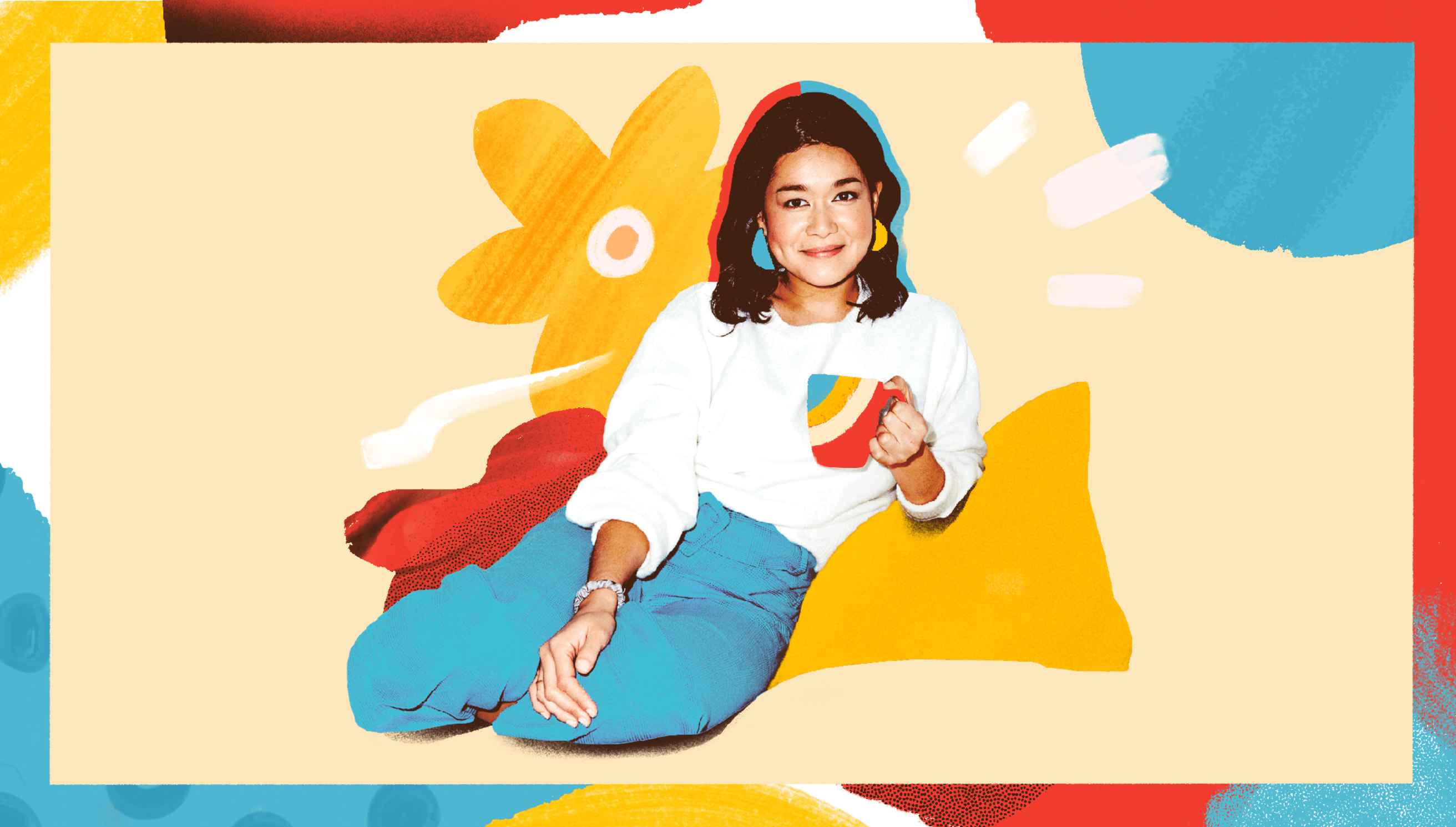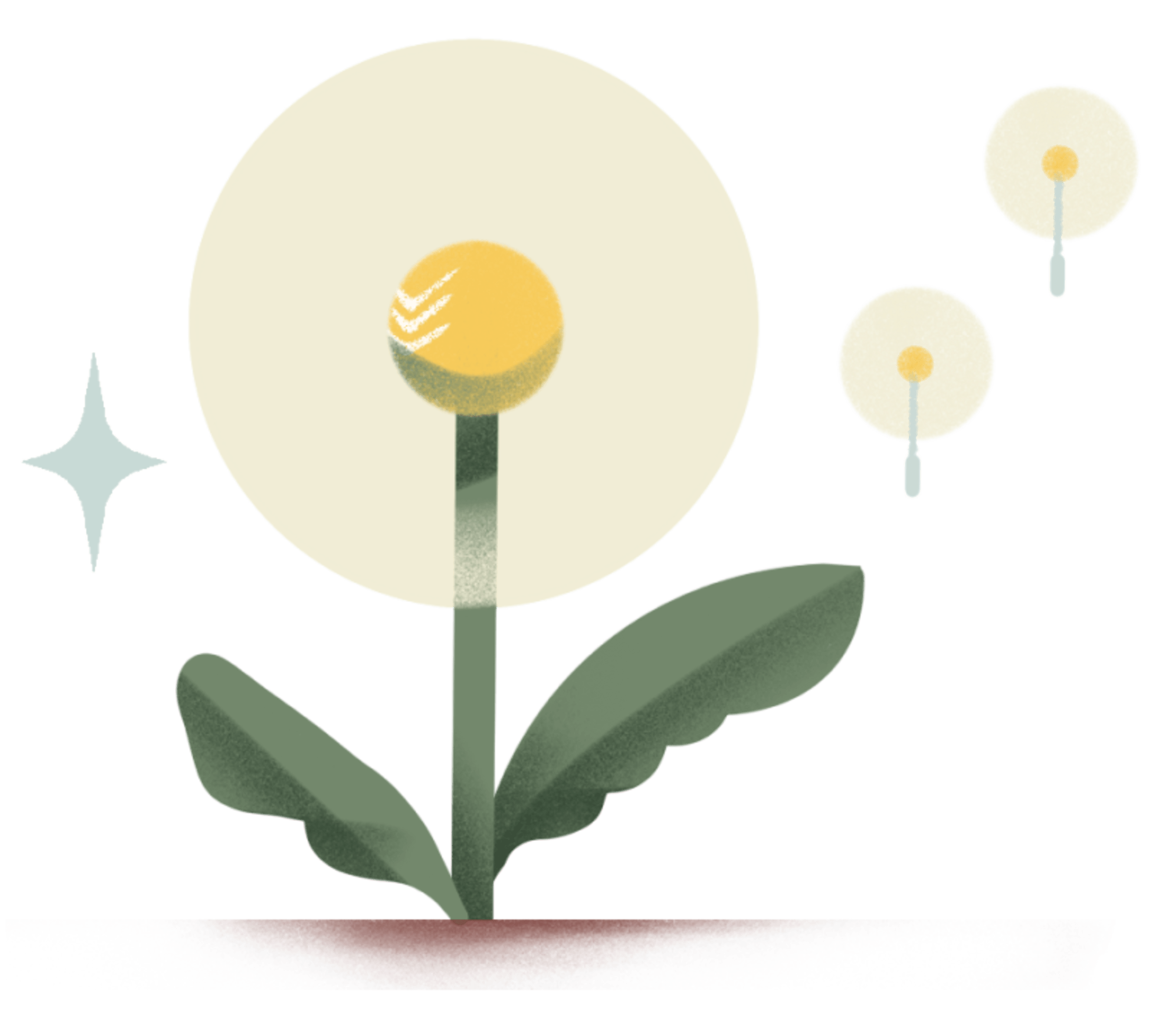When she was approaching her late 20s, Alisha Ramos, then a software engineer and designer at Vox Media, found she was no longer enjoying going out to bars or clubs, but instead what felt like more meaningful ways of spending her time – hosting friends for dinner or staying in for an evening and reading. Suspecting she wasn’t alone, Alisha had an idea: why not form a community for women who want to stay in but stay social?
In 2017, she started the Girls’ Night In newsletter as a side project, to build a community of women with a focus on self-care, quality time, and nurturing friendships. Even before the pandemic made home a central part of life, Alisha had tapped into a growing cultural shift from FOMO to JOMO.
Today, Girls’ Night In has 170,000 newsletter subscribers, 131,000 Instagram followers, and an active membership community called the Lounge, which hosts events like DIY craft tutorials and books clubs. Recent newsletter topics include putting together a home pantry, creating a Sunday night ritual, and interviews with authors of the group’s regular book club books. Earlier this year, Girls’ Night In’s parent company, No Plans Inc., of which Alisha is CEO, launched a new brand called Whiled, which makes products for “designed for downtime” like jigsaw puzzles.
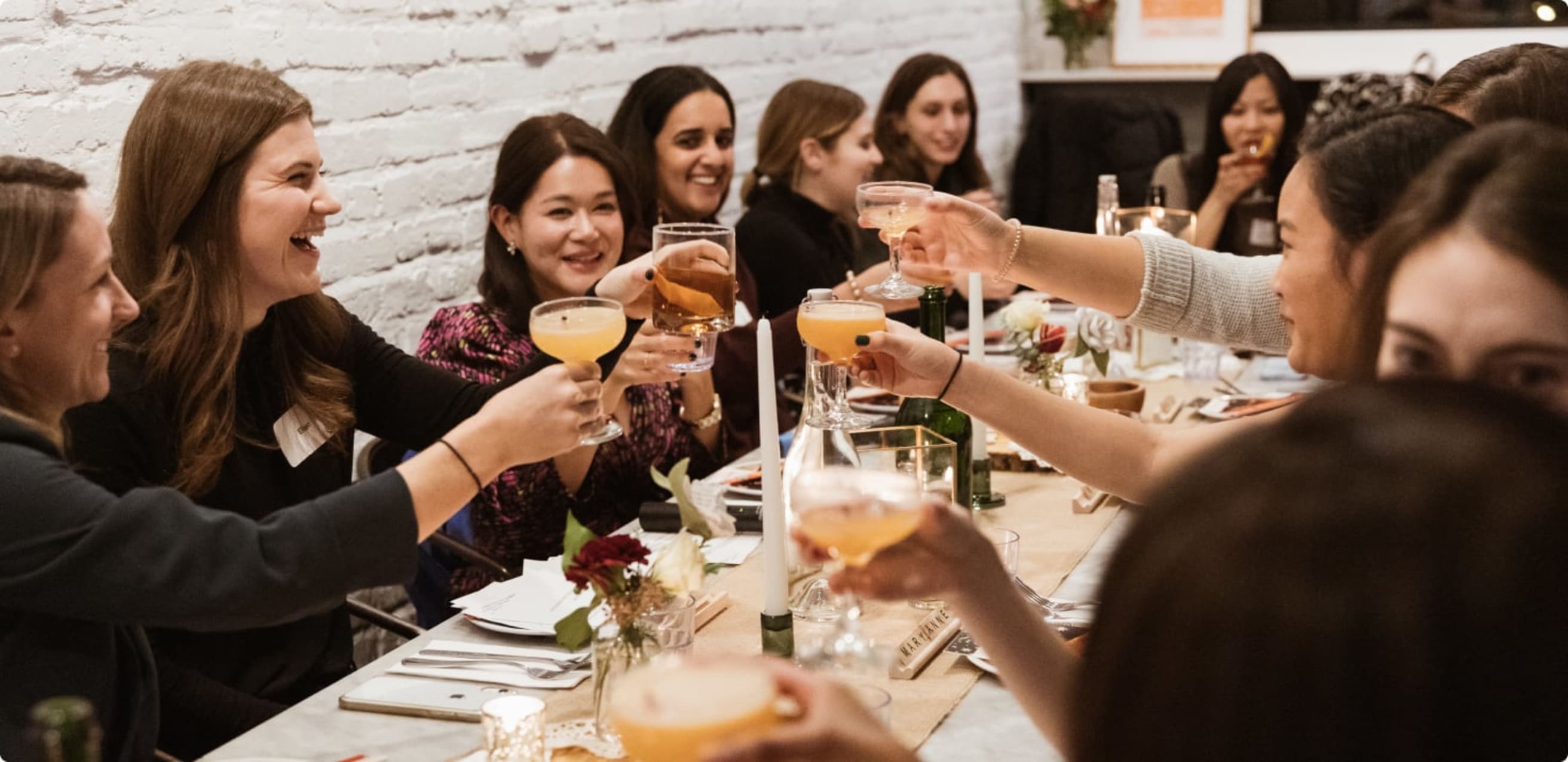
A consistent theme across these brands is to prioritize taking care of oneself, relationships and community as much as work and staying productive.
Although Girls’ Night In is often referred to as a self-care company, Alisha didn’t use the phrase when she launched it, and she acknowledges that “self-care” can have daunting connotations.
“In one interview that I did, someone referred to me as the queen of self-care, and it adds a kind of unrealistic pressure. I think there's a lot of anxiety around self-care, which completely defeats the purpose,” she says. “What people might be intimidated by is this idea that it has to be this like hours long ritual where I take a bath, and I'm listening to classical music and meditating.”
It’s for this reason that she avoids getting prescriptive about what self-care needs to be, saying that for her, it’s become about checking in and taking care of herself by doing restorative activities like deleting social media and reading a book over the weekend, or gardening.
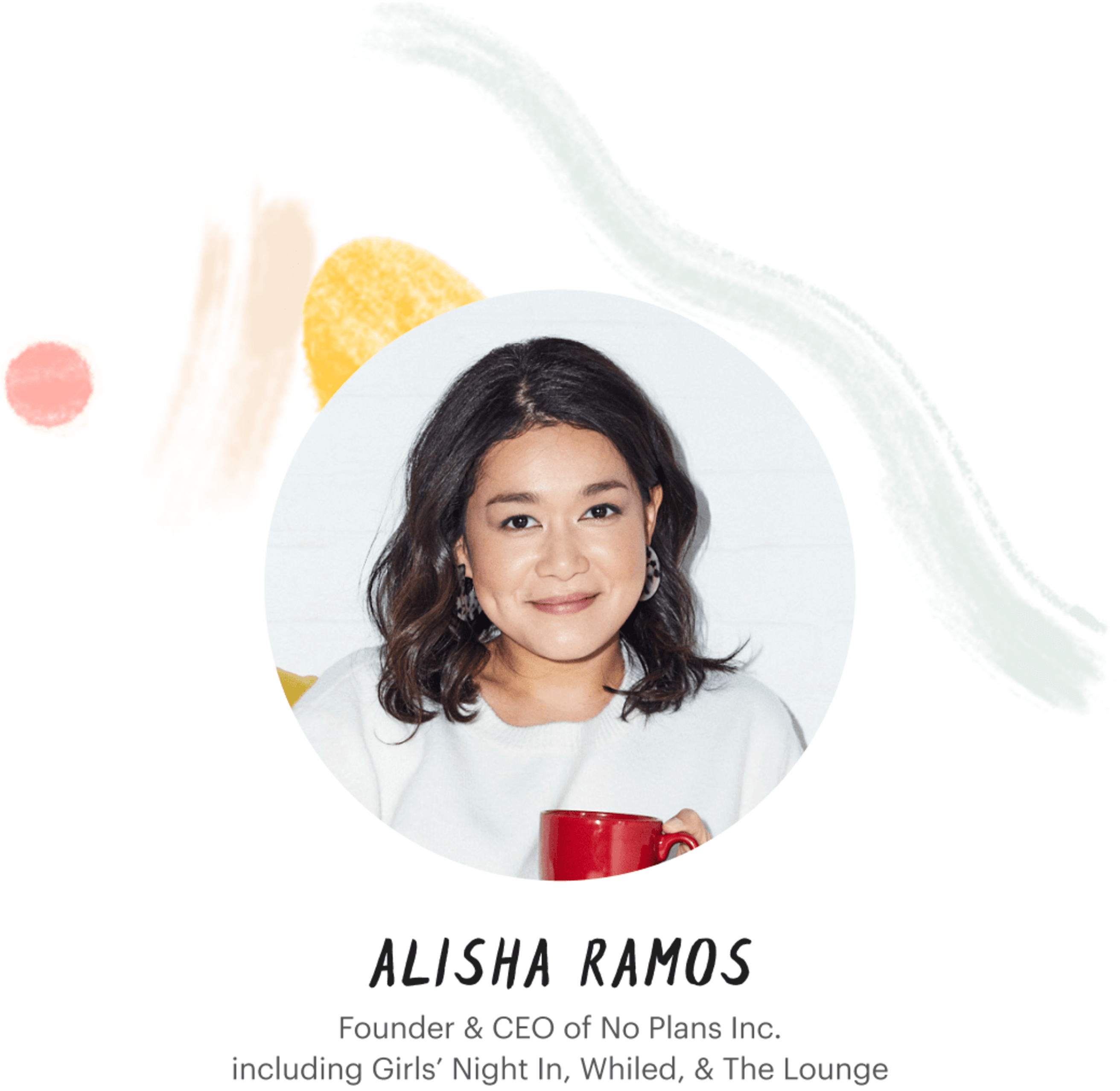
Still, she’s made it a top priority to build self-care into her week, especially during a year that included launching two brands, getting married, buying a house with her husband, and, of course, the pandemic. While it may at first seem counter-intuitive, Alisha uses Todoist, her to-do list of choice, to plan downtime. Planning, Alisha says, is the surest way she’ll get to enjoy her leisure time, and it helps her to avoid the mental fatigue of remembering the tasks involved in her restorative pursuits. Otherwise, she says “it's really easy, especially when you're running your own company, for work to kind of slip into the weekend days.”
At the same time, Alisha gives herself the flexibility not to over-plan, and has come to appreciate that sometimes it’s okay to simply do nothing.
“It’s hard to slow down and do all of the things that you feel like you should be doing. My version of self-care has leaned more into just being more self-forgiving and realistic,” she says.
Read on to learn more about how Alisha stays committed to downtime, even as an entrepreneur in crazy times.
Taking leisure as seriously as work
Because her weeks are “pretty packed with work,” Alisha makes the weekends her own. She uses Todoist to keep track of her personal priorities.

She has a Todoist project called “Weekend” with sections that reflect her different priorities outside of work, like “Self Care,” “Friends,” “Family,” “Organization,” and “Gardening.”
Having lists in place helps her spend her weekends doing what she finds most enjoyable and restorative, like cooking, socializing, and gardening. She adds tasks in each section so she stays on track with what she has planned to do — like planting various bulbs and seeds for her garden. Or she uses the project to brainstorm ideas for seeing friends, like socially distanced barbecues and Zoom game nights — especially helpful since she and her husband moved out of Washington D.C. and farther from their social circles.
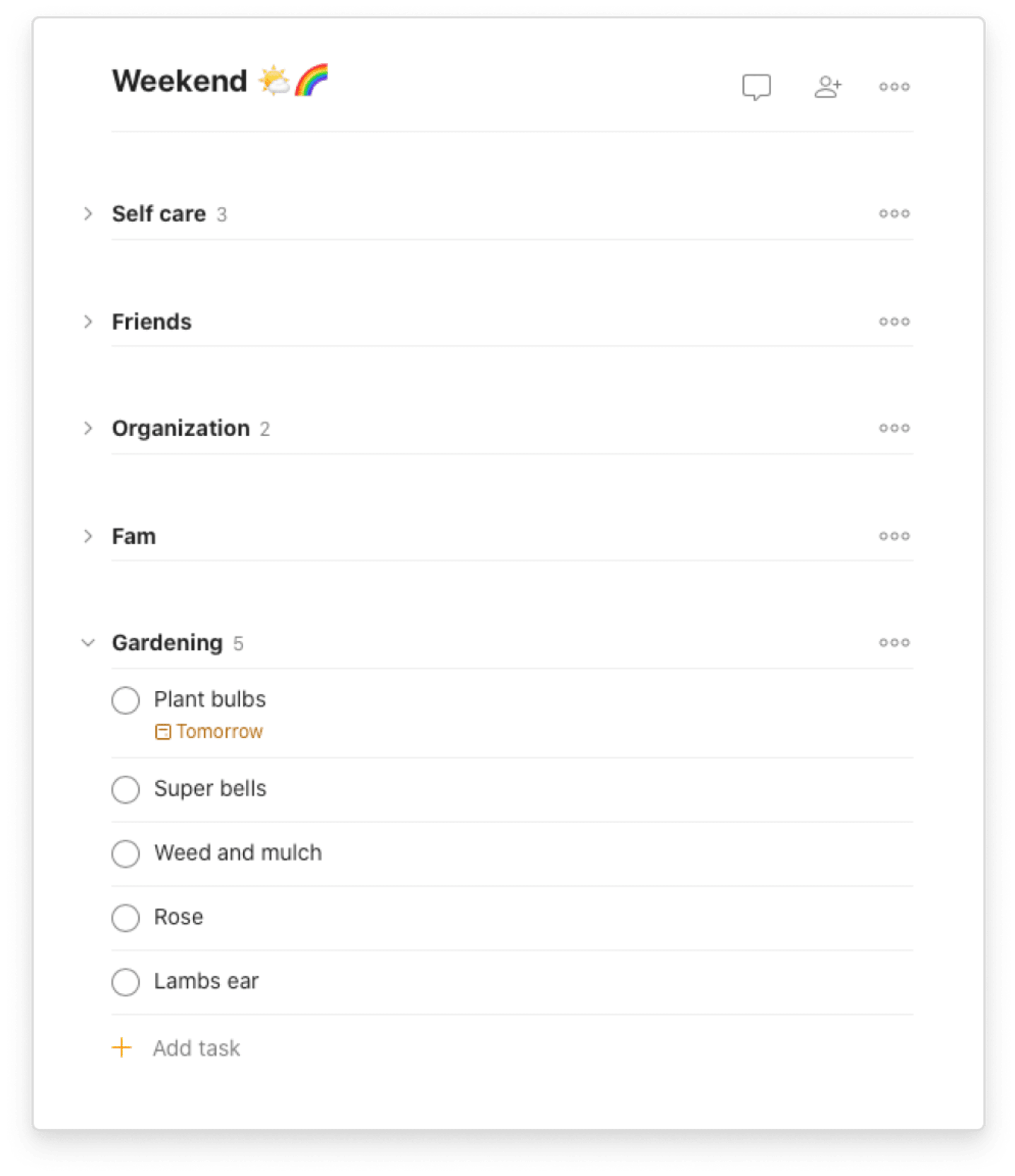
Reducing the mental fatigue of planning
Keeping a to-do list helps Alisha reduce the mental fatigue of planning. Offloading ideas and tasks saves her the brain space to truly enjoy her leisure time.
She avoids getting stuck in “decision paralysis” scrolling through Netflix by turning to the Todoist list she “religiously” updates of films and TV shows to watch. Many of the recommendations come from Girls Night In readers. She loves that she can add websites they share as Todoist tasks on her smartphone to check out later.
Add the URL of a movie you want to watch to your Todoist as a task.
And she has made one of the more dreaded parts of home cooking — grocery shopping — less time consuming. As she wrote in an issue of Girls’ Night In:
Grocery shopping gives me anxiety. Not the actual act of it, but the preparing for it. It is usually incredibly overwhelming to me to figure out A) what are we eating tonight? B) what ingredients do we need? C) what ingredients do we already have? D) how many bags do I need to take to the store with me? E) where is everything located within the store?
To ease this mental load, she created a grocery list template in Todoist. The template is a list of the ingredients she typically buys at the store, which she uploads weekly to a Todoist project, updating as needed for the particular week. She even divided the project into sections based on the order she encounters products at the grocery store (like fruits, veggies, and pantry), which saves the time of scrolling through the list while shopping.
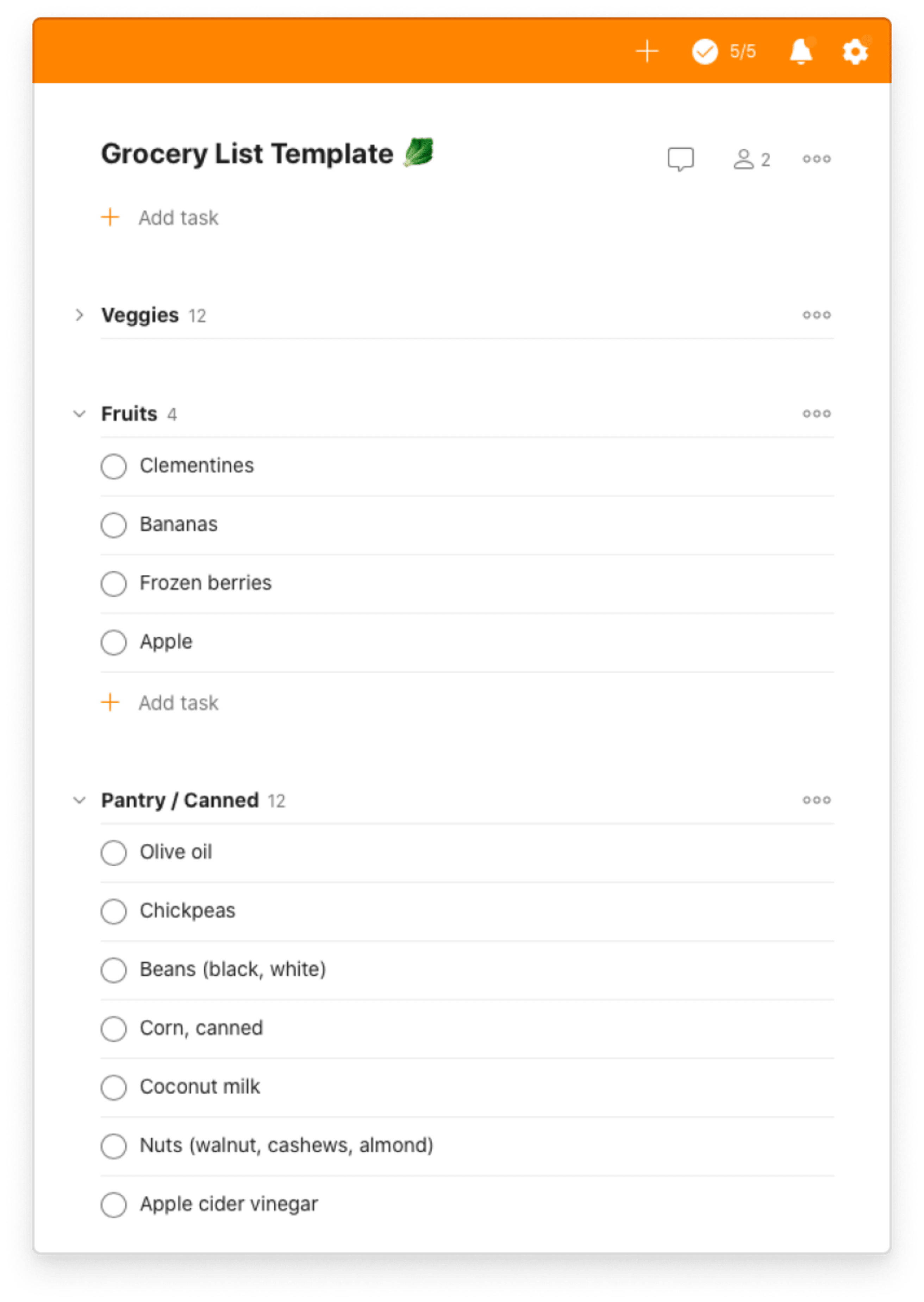
She and her husband also keep a shared Todoist project of recipes, allowing them both to view their recipe list and add ideas. They like to create a task for a dish and paste the link and ingredients in the comments section of the task to keep track of what they might need at the store.
“Sometimes it's just one of us running to grab groceries. So it's kind of nice to get a notification on my phone that says, ‘Your husband has picked up this grocery item.’”

They also used Todoist to tick off their wedding thank you notes as they wrote them, making sure to show their family and friends in a timely manner that they appreciated their wedding gifts. Using Todoist allowed them to consolidate the thank yous onto one master list, rather than track them through the different wedding registry sites they used.
Setting boundaries and taking real breaks
While she likes to plan, Alisha doesn’t want to let it overtake her actual downtime. One of her new favorite things is texting friends to ask if they’re free to catch up for 10 minutes. “That feels super low stakes. And for me personally, I have this mental block around planning friend phone calls way in advance. I get anxious and then it just builds up, so I prefer to do these more spontaneous catch ups with my friends,” she says. “So far, it's had a 100% success rate whenever I ask if someone is free.”
She's become more conscientious about setting boundaries and taking breaks since starting her business. “I've been running Girls' Night In for a few years now, doing the whole entrepreneurial grind and struggle,” she says. “I’ve started to become a little bit more protective of my brain space. Because there will always, always be something that you can be working on, something that you can be doing for your career, or your business, to make things better.”
She takes one hour for lunch every weekday, time during which meetings can’t be scheduled. She spends the break away from her laptop, eating at her dining room table and walking her dog Bowie around the block.
“I think it is really important to make sure you're getting a break in the middle of your day, or actually stepping away from your laptop. It's just an hour. The world will not end because you are not responding to an email or a Slack message within that hour,” she jokes.
And she recently experimented with going social media-free over the weekend, deleting Slack, Gmail, and Instagram.
“It was great, and I didn't miss it at all really. I felt time expanding. I had more time than I thought I ever would, and that was amazing. I finished a book, and I started a second one,” she says.
On not feeling self-care pressure
Alisha’s belief in unplanned leisure time is part of her larger view that self-care shouldn’t become another item on a long to-do list that people get stressed about.
These days, what self-care often means to Alisha is checking in with herself and making time for small, restorative things, like taking advantage of an unseasonably warm fall afternoon to spend lunch throwing a ball around with Bowie and plant bulbs she bought from the garden center.
With colorful artist illustrated puzzles accompanied by imaginative prompts (“If you could hop into this puzzle and enjoy an afternoon with one person (living or dead), who would it be?”), Alisha’s new brand Whiled is trying to free people from the need to feel constantly productive, so they can truly enjoy their leisure. The name comes from the expression “whiling away time,” which dates to the 19th century, an era when leisure was freighted with less guilt. “Being stimulated and also unproductive was widely celebrated,” says the company description.
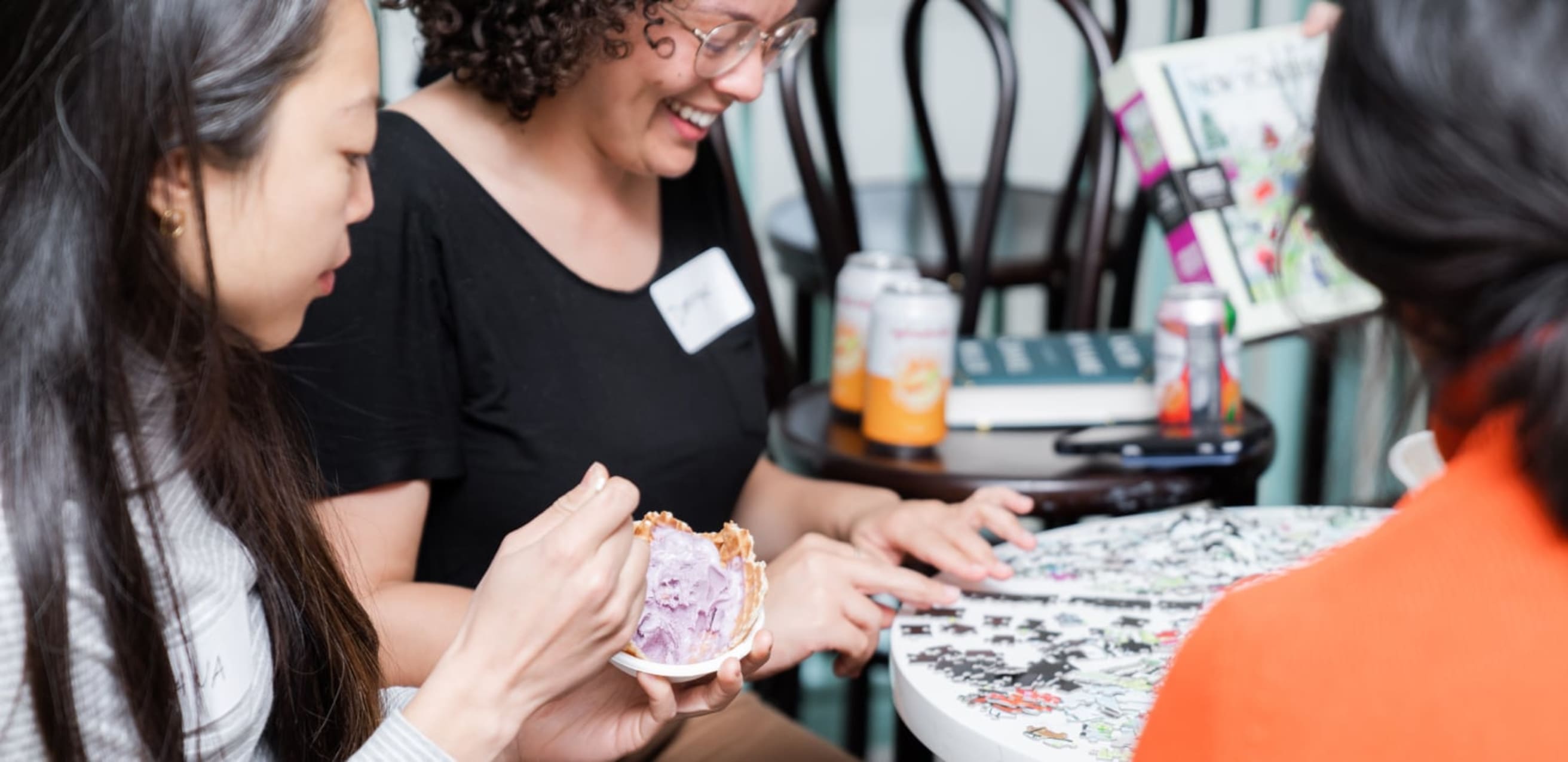
Freeing people from the need to be constantly productive is an important priority for Alisha and the No Plans Inc. brands.
“We really want to embrace this notion of doing nothing and being okay with having nothing to do,” says Alisha. “So, as much as I'm a planner and I love making to-do lists and using my Todoist app, I'm really pushing myself, especially as we enter kind of this nutty holiday season, to make room for myself to just be present, be still, be okay with being bored, because I think some of the best ideas and the most creative times of my life were when I allowed myself to get bored.”
